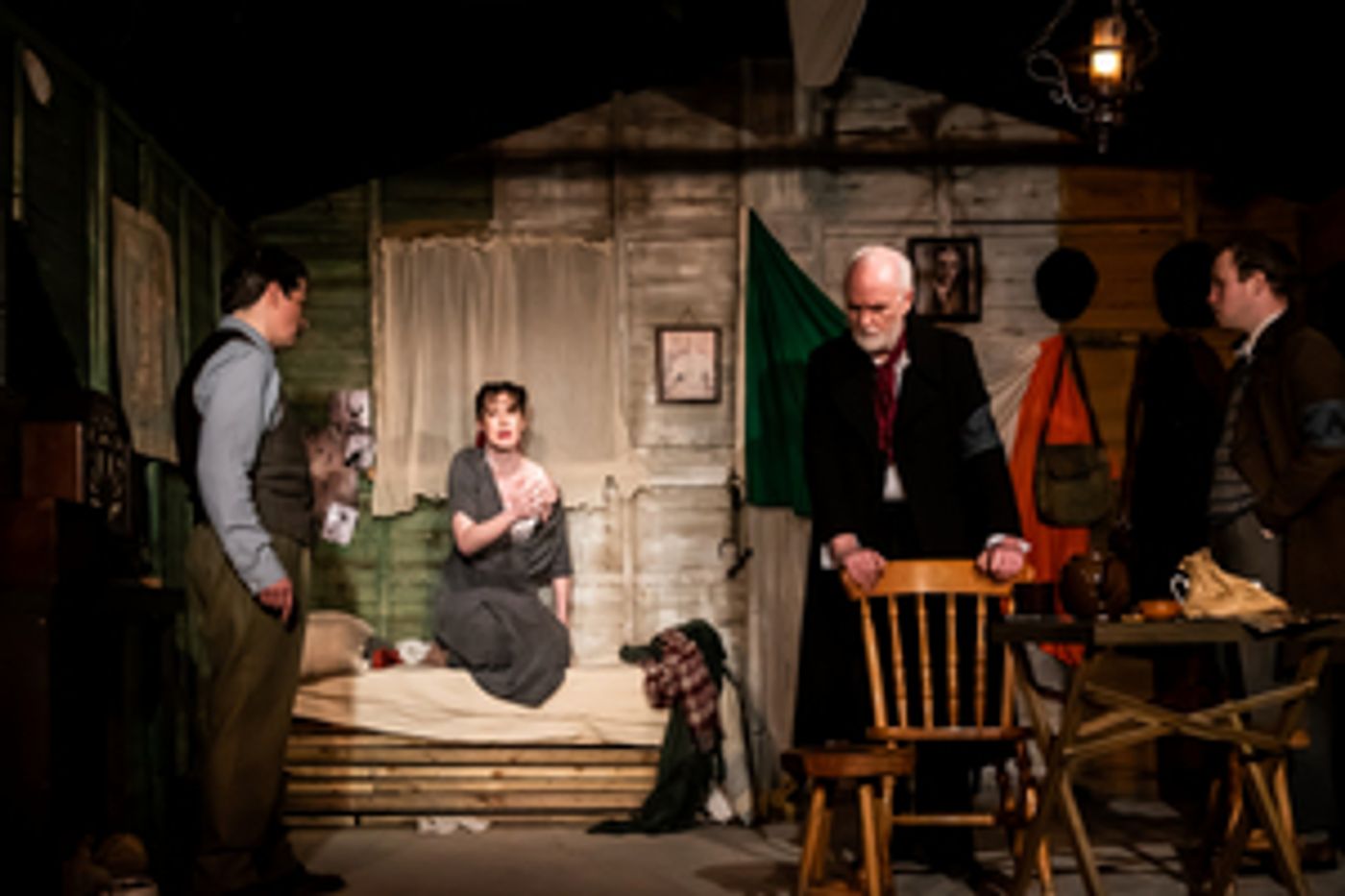Review: DEV'S ARMY, Bread and Roses Theatre
Funny and fascinating comedy-drama set in wartime Ireland

 Growing up in Liverpool in the 70s, one learned much about Ireland's past by watching television and pretty much osmotically, the Irish Sea all but lapping at my doorstep. But I was well into my 20s before I found out, with a jolt of surprise, that the Republic remained neutral throughout World War Two as the UK (including Belfast) was blitzed. It seemed wrong both morally, as the whole concept of democracy faced an existential threat, and tactically, as the idea of a Blitzkrieg stopping just outside Dundalk, was plainly absurd. As ever with Ireland, things were more complicated than that.
Growing up in Liverpool in the 70s, one learned much about Ireland's past by watching television and pretty much osmotically, the Irish Sea all but lapping at my doorstep. But I was well into my 20s before I found out, with a jolt of surprise, that the Republic remained neutral throughout World War Two as the UK (including Belfast) was blitzed. It seemed wrong both morally, as the whole concept of democracy faced an existential threat, and tactically, as the idea of a Blitzkrieg stopping just outside Dundalk, was plainly absurd. As ever with Ireland, things were more complicated than that.
Such thoughts bubbled up only in the final third of Stuart D Lee's funny and fascinating Dev's Army, delivered in a pacy 90 minutes by Helen Niland on Phil Newman's evocative set. For an hour or so, we enjoy some Father Teddish bickering and Dad's Armyish bumbling, as three men charged with the job of lookouts on Ireland's East coast somewhere near Bray, rub along without enough wood for the fire and with no means to communicate with the guards even if they do spot anything. In Boston, they'd be doing this is a bar.
The writing and acting just about avoids the trap of making them mouthpieces first and characters second, always a huge risk in a play with a didactic element in its conception. Paul Murphy captures the nationalist rebel in his Paddy Devlin, who was there (course he was) in 1916, shoulder to shoulder with Michael Collins and the rest. Nick Danan's Dermot Ryan wasn't in O'Connell Street but across two bodies of water in France, as were many Irishmen, fighting and dying for the Empire in the trenches. He's a realist who looks to a future free of the constraints of history's considerable pull and knows it won't come any time soon. Eoin McAndrew is the Father Dougal guy who sits between the romantic and the pragmatist, not knowing much and (slowly) seeing both sides.
It's all good fun (leavened with the bite of an explanation of a cillín, a reminder that olde Ireland wasn't all picturesque leprechauns, fiddle-de-dee poetry and colleens dancing in green dresses) and an education to boot. But matters lurch back into the reality of what Éamon de Valera called 'The Emergency' when there's an explosion at sea and a young woman washes up on the shore. Niamh Finlay's Betty Pope (sure) has that look in her eye, more than a touch of Ulrike Meinhof about her, and the men don't know what to do. Soon, they must make their choices.
Lee's writing is engaging and ambitious, but a little imbalanced. The three men circle each other, never less than amusingly, for too long before the woman arrives to shake them from their saloon bar philosophising. Then the complexity of that aforementioned Irish neutrality and what might happen next is somewhat skated over, the political back-and-forth crammed into distracted conversations and lost a little in a melodramatic denouement (though the play finishes on a perfect note - this is Ireland after all).
It's sometimes said that it is the curse of the Irishman to know too much of his history and of the Englishman to know too little (and ain't that a thing these last six years) but audiences drawn from both heritages, and plenty in-between and beyond, will enjoy this play, beautifully staged and acted, with an edge that does justice to its considerable ambition.
Photo Lidia Crisafulli
Reader Reviews
Videos

